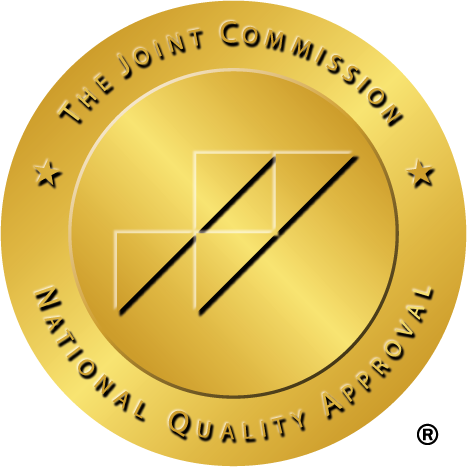KEY POINTS
- Psychiatric care is any mental health intervention, including assessment, diagnosis, interventions, and treatment.
- Psychiatric care is provided on a continuum based on the person’s mental health needs.
- Psychiatric care can be provided, outpatient or inpatient, in community mental health centers, private practices, specialized facilities, residential centers, and hospitals.
- A person must have a mental illness and be a danger to themselves or others to be involuntarily held for psychiatric care.
- A person can not legally be involuntarily held if they do not meet the criteria for a 72-hour hold or a 14-day hold.
What Is Psychiatric Care?
Psychiatric care is any mental health intervention, including assessment, diagnosis, interventions, and treatment.[1] Public or private institutions may provide care in inpatient, outpatient, or residential settings. Psychiatric treatment providers can include psychologists, psychiatrists, social workers, and other mental and physical health care professionals.
Common mental health disorders people seek psychiatric care for include:
- Anxiety Disorders
- Depression
- Bipolar Disorder
- Schizophrenia
- Eating Disorders
- Substance Use Disorders
Levels of Psychiatric Care
Treatment of mental health issues can be provided in several settings and at varying intensity levels. The type or level of care a person needs depends on the severity of their mental health disorder and their overall physical health as well. Based on this, a recommendation can be made to meet their needs and stabilize and improve their overall mental health.
Types of psychiatric care include:[2]
Outpatient
Outpatient treatment is considered the lowest level of professional care. There are many different types of outpatient settings, but the common characteristic is that treatment happens in an office setting that does not require an overnight stay. Outpatient treatment can be based in community mental health offices, at a hospital outpatient clinic, private mental health groups, or solo practices.
Outpatient therapy usually involves meeting with a mental health therapist for individual therapy and/or a psychiatrist for medication management. Therapy appointments are typically scheduled for 45-60 minutes weekly, while medication management appointments are typically scheduled monthly. Outpatient care can escalate to more frequently scheduled appointments to address acute needs or a crisis situation. If a person is unable to have their mental health needs met in an outpatient setting, they may need a higher level of care.
LEARN MORE ABOUT OUTPATIENT PSYCHIATRIC TREATMENT
Intensive Outpatient Programs
Intensive outpatient programs (IOP) usually meet three hours per day and meet for three to five days a week. Many meet during evening hours to allow people to maintain their employment or educational responsibilities. IOPs are group-based and focus on developing skills to manage symptoms. Some IOPs also provide individual therapy and medication management.
IOPs focus on specific mental health or substance abuse issues. IOPs are good options for those who benefit from structured treatment programs. People enrolled in IOPs are often downstepping from a higher level of care or seeing if their symptoms can be managed without accessing a higher level of care. Programs usually run for eight to twelve weeks but can vary by program and the person’s needs.
Partial Hospitalization Program
Partial hospitalization programs (PHP) or day treatment programs are a more involved type of intensive outpatient program. These programs run for six to eight hours daily, at least five days a week. The person’s psychiatric needs have been assessed as being more important than work or school and should be their daily focus. PHPs are an alternative to inpatient hospitalization. Their goal is to stabilize and improve acute symptoms through the following services.
- Assessment and treatment planning
- Health screening and referral as needed
- Symptom management
- Medication treatment, education, and management
- Psychiatric Rehabilitation assessment and referral
- Individual therapy
- Group therapy
- Therapeutic activities (art, recreation, social, skill building)
- Case management
- Crisis intervention services
- Discharge planning
- Clinical support services
Community Integration Program
In community integration programs, the person lives in a therapeutic space, and they share with others (usually a house or apartment) and are supported by staff members. This allows the person to have some independence and increase their interactions with their community while having available support from a staff member.
The therapeutic treatment does not happen at the residence. Those living in a community integration program would travel to participate in the individual or group therapy programs they are involved in.
Psychiatric Assertive Community Treatment
Psychiatric Assertive Community Treatment (PACT) provides therapeutic treatment to the person in their home. The goal of PACT is to prevent the person from being hospitalized. It is effective for people who have a pattern of multiple hospitalizations and wish to break that pattern and who have been unsuccessful in other treatment services.
This is an intensive, community-based, mobile treatment program. PACT staff are available 24/7 to support an enrolled person’s needs to maintain their quality of life and avoid inpatient care. Because of its mobile and intensive nature, providing PACT services outside of urban areas can be challenging.
Residential
Residential treatment centers are places where people live and receive care. This setting is for people who are unable to manage their symptoms at home and require more intensive and long-term care. Staff members are available 24/7 to monitor and support residents.
Residential programs usually involve individual and group therapy, medication management, skill building, and recreational programming. People stay in residential programs for a minimum of 30-90 days, but some programs last for extended periods based on the person’s needs.
Residential centers typically focus on:
- chronic psychiatric disorders that have limited the person’s ability to function independently (bipolar, schizophrenia)
- substance use disorders where the person can detox and complete a rehab program to overcome their substance use disorder
- dual diagnosis programs that focus on both mental health and substance abuse issues.
Sub-Acute Hospital Care
This is a long-term hospitalization, usually over four to six weeks. There are psychotherapeutic hospitals where a person can stay longer, even over years. This is a hospital setting with 24/7 psychiatric nursing staff.
The goal in this care setting is to stabilize the person’s symptoms further and help them address deep-rooted issues. This is a rarely used level of care as most insurance companies will not reimburse, and it is costly to pay out of pocket.
WHAT ARE PRIVATE MENTAL HEALTH HOSPITALS?
Acute Care
Acute inpatient care or psychiatric hospitalization is for emergency mental health situations. People who require acute care are actively suicidal or are experiencing a psychotic or manic episode that is causing them to be a danger to themselves or others. Due to the extreme psychiatric crisis someone in acute inpatient care is experiencing, the programs are highly monitored and secure. They are located within hospitals or specialized treatment facilities.
Acute care goals are safety and stabilization. A person only stays in this setting for three to seven days until the crisis has passed or been addressed. Acute care involves individual and group therapy, medication management, and other therapeutic activities.
LEARN MORE ABOUT ACUTE PSYCHIATRIC CARE
Voluntary and Involuntary Psychiatric Care
Voluntary Psychiatric Hold
In a voluntary admission for psychiatric care, the person recognizes they need a higher level of care and seeks that care of their own free will. They will still need to undergo an assessment to determine if they meet the criteria for admission to inpatient care and could not be better served in an outpatient program.
Involuntary Psychiatric Hold
There are strict laws and procedures that govern Involuntary psychiatric care. Involuntary holds require the person has been assessed to have a mental illness and one of the following:[3]
- Danger to Self: The person has threatened or taken action to cause themselves serious bodily harm or commit suicide.
- Danger to Others: The person has threatened or taken action to cause serious bodily harm to another person.
- Grave Disability: The person has shown a serious inability to care for themselves and provide for their basic needs.
A person can only be held if they meet the criteria above. As soon as they no longer meet the criteria for an involuntary hold, the law requires that they be discharged.
Different Types of Involuntary Holds
There are a couple of different categories of involuntary holds, including: [4]
72-Hour Hold: This type of hold is also known as a 5150 hold, which refers to the section of the Welfare and Institutions Code that allows for a person to be involuntarily held for 72 hours. This is considered an observation period to assess the person’s needs and determine whether they meet the criteria for an involuntary hold. It is legally required to treat the person in the least restrictive setting.
14-Day Hold: This type of hold is also known as a 5250 hold. A psychiatrist or psychiatric nurse practitioner has determined that the person meets the involuntary hold criteria and requires a high level of inpatient care. A 5250 hold can be renewed if the person continues to meet the involuntary hold criteria.
ACCESSING EMERGENCY MENTAL HEALTH TREATMENT
Psychiatric Care at New Waters
New Waters provides high-quality, individualized psychiatric care for clients seeking relief from mental health and substance use disorders. Our programs range from detox to mental health assessments to treatment. Our evidence-based and multidisciplinary services help individuals and their families through treatment and successful recovery.
LEARN MORE ABOUT OUR APPROACH TO CARE
Related Topics
Frequently Asked Questions About Psychiatric Care
Sources
[1] American Psychological Association. (2018, April 19). APA Dictionary of Psychology. American Psychological Association. Retrieved from https://dictionary.apa.org/mental-health-services on 2024, August 27.
[2] RAMP. (n.d.). Settings and levels of mental health care. Resources for Advancing Mental Health in Pediatrics. Retrieved from https://ramp.luriechildrens.org/en/strategies-and-tools/Settings_and_Levels_of_Mental_Health_Care/ on 2024, August 27.
[3, 4] UCLA Health. (n.d.). Patient & Family Resources. UCLA Resnick Neuropsychiatric Hospital Retrieved from https://www.uclahealth.org/hospitals/resnick/patient-family-resources on 2024, August 27.
[5] Washington University Physicians (n.d.). Psychiatric Care General Information. Perinatal Behavioral Health Service. Retrieved from https://perinatalbehavioralhealth.wustl.edu/patient-information-2-2/pbhs-psychiatry-faq/ on 2024, August 27.



